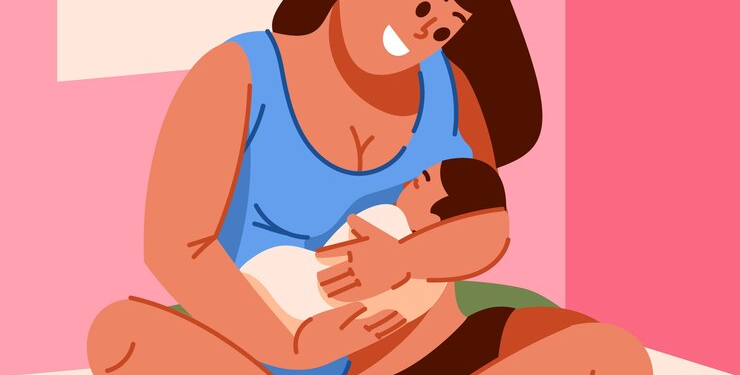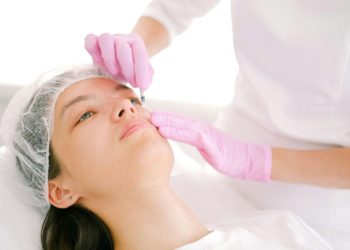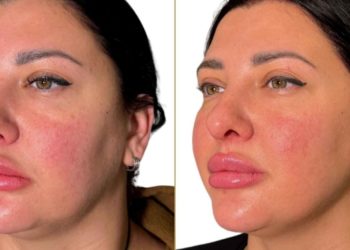The postpartum time can be the first six weeks after the birth of a child.
It is an important period for a new mother’s healing phase, which includes:
- The recovery from labor
- Delivery processes
- Emotional Adjustments Toward Motherhood
New mothers go through hormonal changes and major mood changes during this phase. So, extra care along with proper treatment for postpartum healing is highly recommended!
Physical Healing
Physical healing after childbirth is often a complex process that may require different care processes based on the type of delivery.
Having undergone vaginal delivery, the women may follow the steps below.
- Pain Relief Methods
- Sit baths: sitting in a warm sitz bath for 15-20 minutes will soothe soreness and foster healing. Do it severally throughout the day.
- Pain medication: take over-the-counter analgesics like ibuprofen or acetaminophen. It is necessary to ask the healthcare provider to avoid the danger of medicine interaction.
- Ice packs: apply an ice pack to the wound for 10-20 minutes every couple of hours. Ice will relieve swelling and numb the part
- Proper Hygiene Includes
- Keeping the area clean: from the front to the back use warm water to rinse the part after going to the restroom. After that consider a peri bottle rinse. It is vital since it does not trigger pain while cleaning the area.
- Gentle drying: avoid friction and use a soft towel to pat the part dry.
- The mother should also avoid irritants, such as scented or hard papers. They are likely to foster soreness.
- C-Section Recovery
- The doctor may decide to stick adhesive strips to the area to help the wound close up.
- The incision may be cared for by cleaning the site and keeping it dry.
- Scarring may also be reduced by rubbing the site with a silicone gel.
Pain management strategies include the following:
- Continue taking prescription relievers for pain.
- Some degree of movement is needed like walking.
Rest and Sleep
Sleep is important for postpartum recovery, but it can be challenging while having the newborn with you.
Here’s what you can do:
- Sleep when the baby sleeps. Napping every time your baby is napping may help you get proper rest over the day.
- Share nighttime duties with your partner.
- Have your guests come for a shorter time or postpone the visit to avoid getting exhausted.
Remember, taking the time to rest helps you refresh your body and mind at this challenging time.
Nutrition
Eating nutrient-dense foods allows us to:
- Repair body tissues
- Improve immune function
- Contribute to the recovery process
Moreover, for women who are breastfeeding, it is essential to include proteins, healthy fats, and a variety of vitamins and minerals.
Women who decide to feed their kids with the formula should also concentrate on their meals to refill the body and remain active.
This is why, eating balanced meals rich in calcium, iron, and omega 3 helps the newborns to develop and women to feel good.
Emotional Wellbeing
The Baby Blues vs. Postpartum Depression
Baby Blues
Many new mothers find themselves experiencing the baby blues between days after delivery and up to two weeks.
Symptoms include:
- Massive swings in mood
- Urge to cry without reason
- Sleeping problems
The large hormone shift after childbirth, extreme physical fatigue and the change in a woman’s status all become psychological shocks.
Postpartum Depression
Postpartum depression can be a longer-lasting and more severe condition that may first develop shortly after childbirth or within the first year of birth.
The symptoms are much more severe and last longer than those of the baby blues.
A woman suffering from PPD may feel:
- Sad or listless for no reason
- Emotions might change rapidly from one extreme to another
- Feelings of worthlessness
- Suffer from extreme fatigue
- Not being able to sleep AT ALL!
This is why PPD is a dangerous condition and it may change into an even more serious form of depression.
Seeking the Help of Professionals
Health professionals are a must to consult as soon as such PPD symptoms are shown! The earlier you diagnose PPD, the more effective treatment is likely to be.
The doctor may provide you with the help of:
- Psychologists
- Social workers
- Medication
- Support groups
At all events, they need to be told about your feelings and how long you have been feeling this way. Your private gynaecologist can also assist you with the symptoms and guide you to other health consultants for proper treatment.
Importance of Support System
Emotional support is crucial at this time. Called up by partners, family, friends, or support groups, it may bring you a sense of security and practical aid.
Even just exchanging experiences and words of encouragement can relieve some of the pressure. This can turn what would otherwise be an irritable and insupportable period into something more positive.
A solid support network helps mothers at the emotional level and also makes early motherhood easier to navigate.
Exercises for Healing
Kegel exercises aid with recovery by improving bladder control and getting the pelvic floor muscles back in shape.
This also speeds up perineal healing. In this way, strengthening these muscles actually helps them relax. Moreover, if gentle stretches and exercises are carried out, your body can recover fully, removal of tension occurs.
Activities ranging from walking to pelvic tilts, as well as mild yoga asanas, will gradually restore power and flexibility.













































































